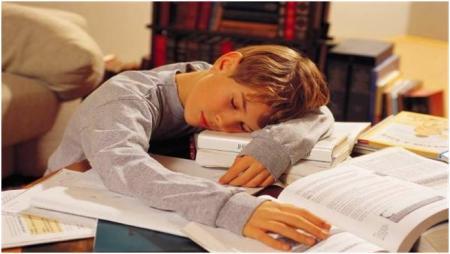
The study, carried out by the University of Leeds in conjunction with Silentnight, looks into the effect of bedtime routines and the impact on quality of life of 6-11 year olds, www.nhs.uk reported.
Led by D. Anna Weighall, a developmental cognitive psychologist with expertise in sleep research, this is the first major study to characterize children's sleep habits in the UK and has been conducted after consultation from more than a thousand parents.
The findings have revealed that 36 percent of primary school age children get eight hours or less sleep a night and 15 percent get seven hours or less. Such low levels of sleep are likely to have a negative impact on a child's ability to function in the classroom and reach key milestones.
Anna Weighall has explained how the findings were particularly concerning, with the low levels reported likely to impair long term cognitive and academic development in children.
Poor routine could be to blame, with 83 percent of children reporting being awake by 6:30a.m. on a weekday despite five percent still being awake at 10p.m. the night before and 16 percent still being awake at 9pm.
As well as poor routine the research found technology to be a key contributing factor to lack of sleep amongst children, even from the age of six.
The findings show that children who have smartphones or tablets in the bedroom sleep less than those who leave their devices out of the bedroom — losing up to an hour of sleep a night compared to families that keep bedrooms a tech-free zone. This sleep loss applied even to children who kept devices in their room but had them switched off and the trend increased as they got older, with 11-year-olds losing the most sleep because of tech.
Other factors keeping children awake include worries about bullying and worries about homework.
One in six parents said their children's sleep has been affected by bullying, with parents most concerned about the problem saying their child got up to an hour less sleep than children whose parents did not see it as a concern.
Nearly a third of parents surveyed who said their child worried about homework and believed worries about homework have a negative effect on their child's sleep, with children who worry about homework getting nearly an hour's less sleep than their peers who do not.
